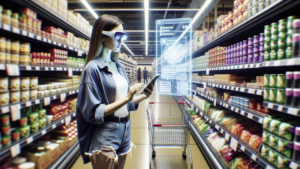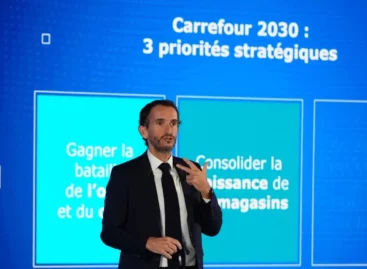Innovations – more nuanced ways and preferences
With a record annual inflation rate of 17.6% measured by the Central Statistical Office (KSH), it is understandable that the appeal of private label (PL) products has continued to grow.
This article is available for reading in Trade magazin 2024/6-7
According to a NIQ survey, PL sales increased by 4% in the 12 months leading up to June 2023 and by another 6% to January 2024, representing an average cost saving of 13-15% for consumers compared to their usual brand preferences. The PL market is expected to grow further in the coming years. According to research by DataHorizzon, the size of the market was USD 742.1bn in 2022 and at the current compound annual growth rate of 10.8% it will reach USD 2,049.7bn by 2032. Europe has a significant share of the private label market and the range of PL products is expanding.
Health and well-being – they are still top trends
Despite the worrying economic situation, health, wellness and convenience will remain a top priority in 2024 and this isn’t expected to change in the near future. According to Vegconomist’s survey from early 2024, 28% of consumers are more aware of what ends up on their plate and how much exercise they do in a day, and 59% check the ingredient list more often than in 2023 or before. FMCG companies are responding to this trend with healthier choices. Analysts say functional foods and low-sugar options mean the start of a health-conscious revolution. While there is continuous innovation in the domain of alternative meats – meat substitutes and lab-grown meats – the focus is increasingly shifting towards healthy alternatives in plant-based eating. Vegan trends for 2024 show that whole foods are dominating the discourse: there is a growing emphasis on plant-based products made from recognisable, unprocessed ingredients such as pulses, seeds and whole grains.
Need for sustainability remains, but it is becoming more nuanced
Sustainability isn’t only a consumer expectation, but has also become a key part of business strategies. Avoiding single-use packaging and using recycled materials and energy-efficient technologies are among the most positive industry practices that more and more environmentally conscious consumers expect from companies. One of the innovation trends for 2024 appears to be that manufacturers are paying more attention to integrated processes such as on-site cleaning, heating and cooling to reduce energy and water consumption. While green claims remain a high value differentiator, they will be subject to stricter control in the future. The Green Claims Directive of the European Union, which came into force in 2024 as part of the fight against greenwashing, already checks the truthfulness of slogans that were often used as empty phrases. At the same time sharing credible environmental information can increase brand equity and consumer trust, helping to drive business growth.
Virtual and augmented reality as a tool for brand communication
FMCG companies are looking to offer consumers not only products but also experiences. People like to play games and want interactive experiences, so companies have started to take advantage of this opportunity to promote their products. Virtual and augmented reality are popular, engaging customers and keeping them interested – and by this building brand loyalty. This trend increases brand visibility and improves the consumer experience. For example IKEA is using virtual reality technology to launch tours of its stores. L’Oréal has used AR technology to help shoppers choose cosmetics. Digitalisation and AI-driven developments are transforming processes. They are helping product design, increasing production efficiency and optimising supply chains.

Virtual and augmented reality are popular, engaging customers and keeping them interested
Personalised offers for specific needs
Digitalisation and AI-powered solutions are transforming processes. They are helping product design (HELL has been a pioneer in Hungary), increasing production efficiency and optimising supply chains. This means that companies can respond more flexibly and quickly to market changes. Engaging with influencers on social media is becoming an effective promotional method. Bloggers build trusted relationships with audiences and have a significant influence on purchasing behaviour. In a world where uniqueness is more valuable than ever, personalisation is becoming a key element of FMCG marketing strategies. Companies are using consumer data to make offers that meet the specific needs of a particular customer. The use of Big Data analytics is also becoming part of the marketing strategy of successful FMCG companies. Companies are analysing consumer data to better understand behaviour, preferences and needs. This ensures that marketing campaigns are fine-tuned and products are adapted to consumer needs. //

AI helps companies respond to changes faster and in a more flexible way
Related news
More international star speakers and AI video competition at WAVES
🎧 Hallgasd a cikket: Lejátszás Szünet Folytatás Leállítás Nyelv: Auto…
Read more >Related news
Not a turnaround, but consolidation: an agricultural outlook for 2026
🎧 Hallgasd a cikket: Lejátszás Szünet Folytatás Leállítás Nyelv: Auto…
Read more >







